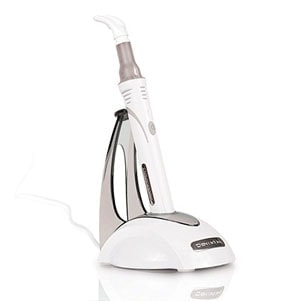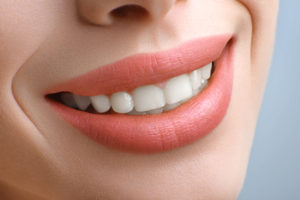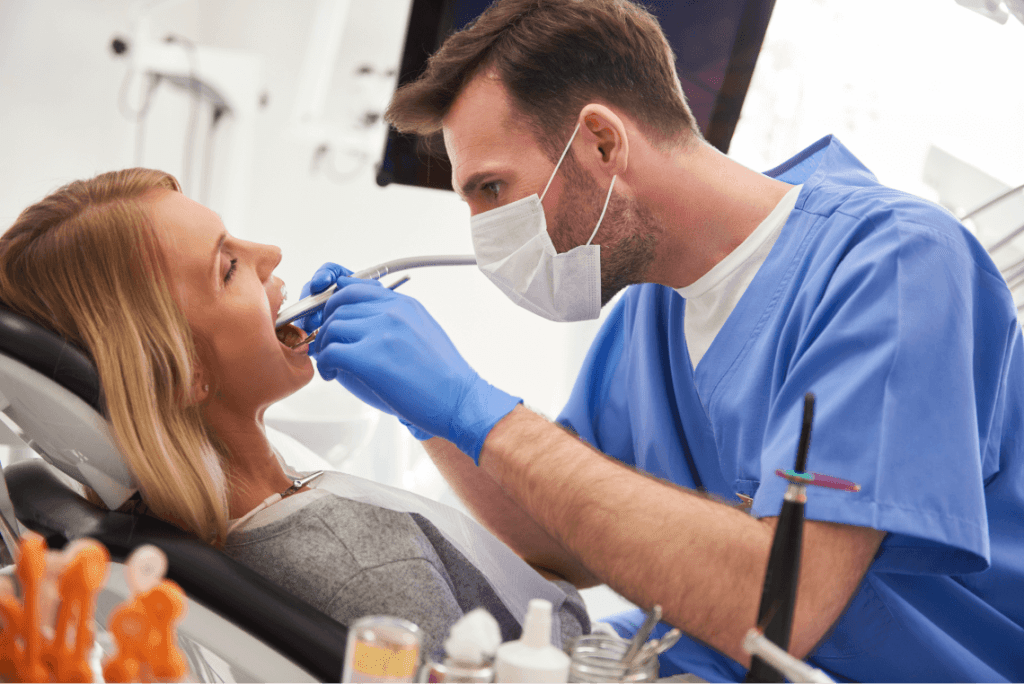Are you interested in trying oil pulling to improve your oral health? Can oil pulling really benefit your teeth and gums? Research says it may help, but should not be a substitute for brushing and flossing.
Originating in India over 3000 years ago, oil pulling is a practice used in Ayurveda, an ancient alternative medicine system. Oil pulling involves “pulling” toxins from the body by swishing an oil — such as coconut, sesame, olive or sunflower oil — in the mouth for several minutes. Ayurveda practitioners claim that the anti-bacterial and antioxidant properties in certain plant oils may help prevent tooth decay, gum disease, dry mouth, and other oral conditions.
Do dentists recommend oil pulling?
The American Dental Association (ADA) does not recommend oil pulling to improve oral health or general well-being, citing lack of “reliable scientific evidence.” The ADA instead urges everyone to brush two times a day with a fluoride toothpaste, floss at least once a day, refrain from smoking, and see a dentist for a cleaning and examination every six months.
Although no anecdotal evidence indicates that oil pulling is harmful in any way, the ADA is concerned that people might replace brushing and flossing with oil pulling.
The Canadian Dental Association holds similar views. According to representatives for the CDA: “We sense there is no harm to oil pulling. However, we are not convinced that oil pulling offers any particular benefit to oral health.” However, the CDA notes that swishing oil around in the mouth may help loosen debris between teeth, which can then be more easily removed while brushing.
Can oil pulling reverse tooth decay?
Some studies suggest that oil pulling may help delay the progression of oral health conditions such as gingivitis, halitosis, and plaque accumulation. However, no studies yet indicate it could reverse tooth decay.
If a tooth already suffers from mild to moderate decay, oil pulling may work to slow down decay by reducing the population of oral bacteria. A study published by the Indian Journal of Dental Research reported that individuals who used sesame oil instead of mouthwash experienced improved gum health, less dental plaque, and lower levels of bacteria in plaque samples.
Another study in the Journal of Clinical and Diagnostic Research studied the effects of oil pulling on individuals with chronic halitosis. Results indicated that sesame oil decreased the bacteria causing bad breath as well as treatment with chlorhexidine. This result was duplicated by a similar study published in the Journal of the Indian Society of Pedodontics and Preventive Dentistry.
Can coconut oil damage teeth?
Coconut oil does not damage teeth. Plant oils such as coconut, sunflower, and sesame oil have strong antimicrobial and antifungal properties that may improve oral health when used in conjunction with brushing, flossing, and getting regular dental cleanings.
People with plant oil allergies should not practice oil pulling. Symptoms of a plant oil allergy include hives, tingling of the mouth and lips, and swelling of oral tissues. It is possible to be allergic to coconut oil but not sesame or sunflower oil.
Oil pulling with coconut oil could possibly pose a slight health risk to people with heart disease or high cholesterol, if any oil is swallowed. The American Heart Association (AHA) recommends that individuals with cardiovascular problems replace saturated fats like coconut oil with unsaturated fats. The AHA further advises people with heart disease should limit daily calories from saturated fat to less than 13 grams per 2000 calories. A tablespoon of coconut oil contains nearly 12 grams of saturated fat. Although the oil used for oil pulling should not be swallowed, some people may be likely to swallow the oil accidentally.
Can oil pulling be performed every day?
Yes, you can oil pull every day as long as you do not experience allergy symptoms or your doctor advises you against it. However, always ask your dentist about oil pulling before starting the practice.
Oil pulling instructions
Beginning oil pullers should start with limiting swishing to five minutes, eventually working their way up to as long as 20 minutes. Ayurveda practitioners recommend gently swishing to avoid achy jaws. Slowly suck the oil through and over your teeth to promote the removal of bacteria and plaque.
Do not swallow the oil. If you have to keep resisting the urge to swallow, spit out the oil you have in your mouth, and try swishing again with less oil. Most people find that a tablespoon or less is enough to swish without difficulty. When finished, spit the oil into a trash can rather than the sink to avoid clogging pipes.
For individuals with mild gingivitis or bad breath, oil pulling once a day is recommended until symptoms improve. If you don’t have any teeth or gum problems, oil pulling twice a week is likely sufficient.
Never replace brushing and flossing with just oil pulling. While a few reports show evidence that oil pulling may reduce minor gum bleeding and halitosis, there is currently no clinical evidence supporting the ability of oil pulling to reverse tooth decay.
Find a certified pain-free dentist today
Looking for a new dentist? Whether you need a cleaning, a cavity filled, teeth whitening, a new crown or another dental procedure, DentalVibe can help you find a pain-free dentist near you.
















